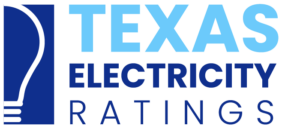Paul Ring over at Energy Choice Matters has been on fire lately with a number of interesting and thoughtful articles. In the latest one, Paul analyzes some comments Calpine COO Thad Hill in regards to the issues that Texas is having in attracting new investments in energy generation. Calpine is a fortune 500 company with more than half a dozen major power plants all over the country.
As always, the original article by Paul Ring is fantastic, and I encourage everyone to take the time to read it. That being said, below I’m going to spell out the issues facing Texas electricity.
The basic issue discussed by Hill and analyzed by Ring is how Texas is currently having trouble attracting interest from investors who are willing to build new power plants in Texas. As last July and August demonstrated, Texas is right on the edge of having enough electricity generation capacity to meet the state’s needs during the hottest months of the year. And that doesn’t even take into account what pending EPA changes in 2012 will do do to older coal-fired plants that have been deemed as too “dirty” in regards to pollution. In short, it looks like Texas is going to have problems meeting their power needs, particularly if we have any more summers like the one we just experienced.
So what is the problem? Just build more plants, right? Well, that’s where things get tricky. Under deregulation, the model is that investors shoulder the burden of new plant construction, when before the state could simply tax or charge Texas electricity customers directly through their bills to subsidize new plant construction. But this is out of the question in the deregulated market (as it should be). Meanwhile, investors like Calpine, are saying that building plants in Texas is too risky and might not be profitable enough to warrant them taking the risk. In a regulated market, investors could be guaranteed a certain amount of energy to be purchased over a long time period by the state or regulated entity, but in the Texas electricity market the only driver is demand, there aren’t any built in guarantees or incentives. Basically, most Texas customers don’t like to sign up for electricity more than a year at a time with one company, so most REP’s are only buying energy in year metrics. Investors need to take their chances just like customers when they’d prefer to have 7 year guarantees. Since they can’t predict their profits and losses, and they’re unwilling to invest. Meanwhile, Texas desperately needs more energy generation plants. So we are at an impasse.
Whatever the solution, and I have no idea what it will be, guarantees are out of the question as are subsidies from Texas citizens to build new plants. Both of those solutions would be large steps towards removing deregulated electricity completely because they would be flying in the face of electric choice in Texas. One thing is certain, this issue will only continue to get more visibility as time moves on, because it is a huge problem that will have to be solved somehow.
